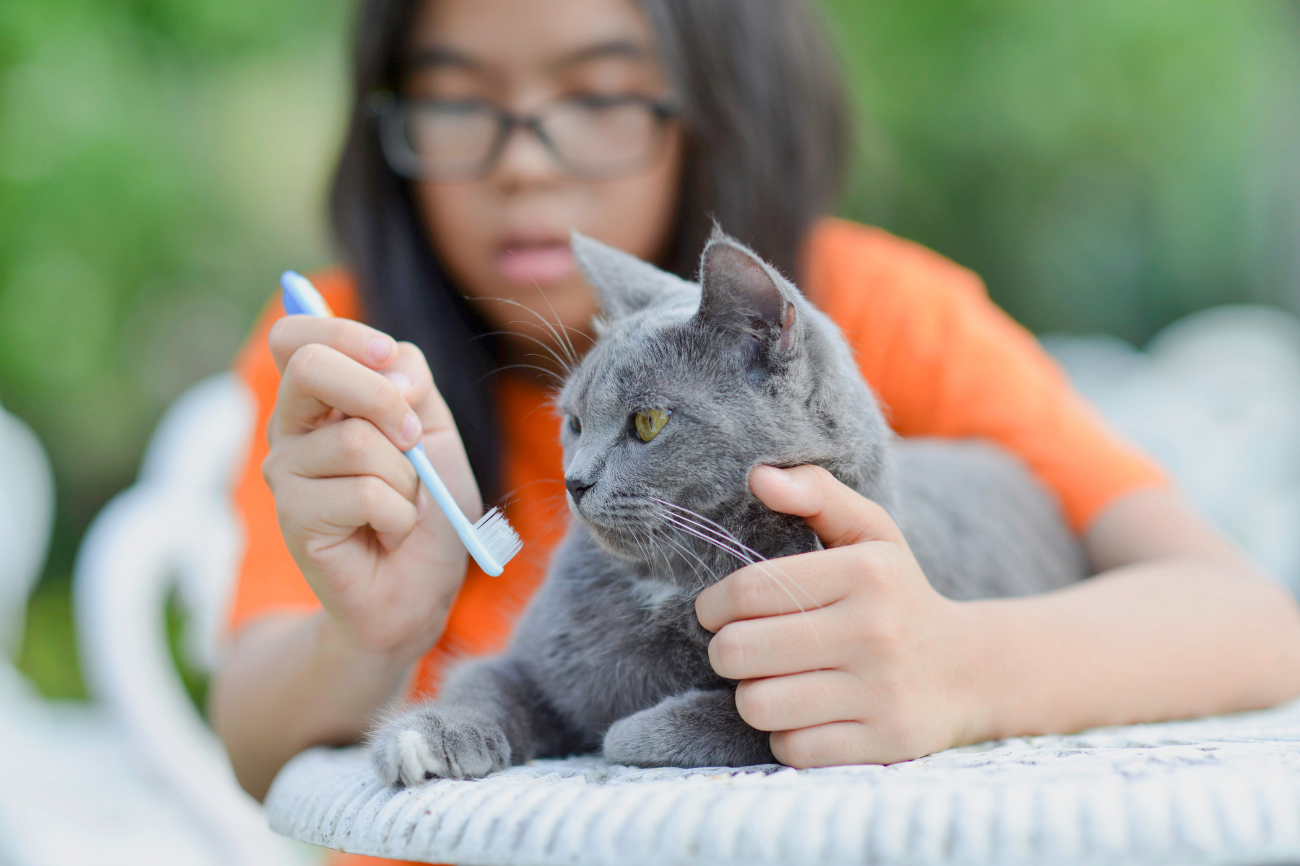
“Should You Brush Your Cat’s Teeth? A Guide to Feline Dental Care”
You’d be forgiven for thinking that brushing a cat’s teeth is something like that no worth the risk to life and limb (or at least fingers). But it’s something you might want to reconsider.
We know that if we don’t brush our teeth ourselves, they will eventually fall out, right? Well, it can happen to cats too. In fact, periodontal disease is alarmingly common in our furry friends.
According to the Feline Health Center at Cornell University College of Veterinary Medicine, between 50 and 90 percent of cats over the age of four have some form of dental disease. In addition to tooth loss, painful gums can make it difficult for our feline friends to eat – leading to even more health problems.
This is why many veterinarians and veterinary organizations recommend daily brushing if possible. Some even offer twice a day. If you’ve decided to jump in and give it a try, here are some tips on how to do it safely.
Read more: Can cats get dementia?
How to brush a cat’s teeth
First, get the right gear. You don’t want Oral-B here. Get a toothbrush designed for cats and each get their own brush.
Also, be sure to choose a toothpaste designed specifically for cats; they come in delicious flavors, depending on who you ask, like chicken and tuna. Never use human toothpaste on cats — may be harmful to them.
You are now ready for the procedure itself, right? Well, not quite. As anyone who has spent time with cats can imagine, you have to approach this job very carefully.
Chewy, the online pet store, offers a charmingly optimistic advices about how to get the job done. This involves patience, treats and a remarkably docile cat.
The main idea is to start by gradually getting them used to handling their lips. (Ideally, you’ll start this when your cat is young.) To do this, brush one or two teeth at a time until everyone is comfortable with the process.
Eventually, assuming you still have all your fingers, you’ll be able to get all the way to your back teeth. Just remember to give your cat a treat as a reward for its cooperation when you’re done.
Should I brush my cat’s teeth?
Jackson Galaxy is a specialist in cat behavior – and a sort of cat whisperer. When it comes to hygiene, he takes no prisoners: your cat’s well-being is more important than your little comforts and preferences.
For example, he emphasizes the importance of regular cat nail trimming and even suggests having multiple litter boxes in different places around the house. (Squeezed between the laundry room wall and the washing machine it won’t happen.)
Yet the Galaxy completely lets us off the hook when it comes to brushing our teeth. In a video on the subject, he says if you can get away with all your fingers intact, go for it. But even he doesn’t brush his cats’ teeth (an experience he says can be “nightmarish”).
In fact, he points out that frequent brushing can actually harm your relationship with your cat. how? Every time you reach to pet them, they will expect you to stick a stick in their mouth.
However, Galaxy says that the decision whether or not to wash, and how often, should ultimately be made in consultation with your veterinarian.
Read more: 8 Dos and Don’ts When Communicating With Your Cat
How to keep a cat’s teeth clean without brushing
If you decide that brushing your cat’s teeth just isn’t going to happen in your house, know this there are alternatives. They may not be as good as daily brushing, but they could help prevent periodontal disease.
Galaxy recommends leaving this to the professionals: Take your cat to the vet once or twice a year for a checkup and dental cleaning. Between visits to the vet, you can try dental gel.
They contain enzymes that kill the microbes behind tooth decay. You’ll still need to apply the gel to your cat’s teeth, but you don’t have to brush – so it’s quicker and perhaps a little less stressful for everyone involved.
You can also buy these enzymes in liquid form; simply spray the solution into your cat’s mouth with a dropper or add it to the water bowl.
Chew toys can also be helpful. Some have a mesh pattern that scrapes the plaque as your cat chews on them. But any kind of hard chew toy can help with dental hygiene.
In short, regular brushing is a great idea—if you can manage it without having to buy chain mail. Even if you can’t, however, it’s time to stop completely ignoring your cat’s dental hygiene. Talk to your vet about this.
Read more: How long can cats be left alone?

